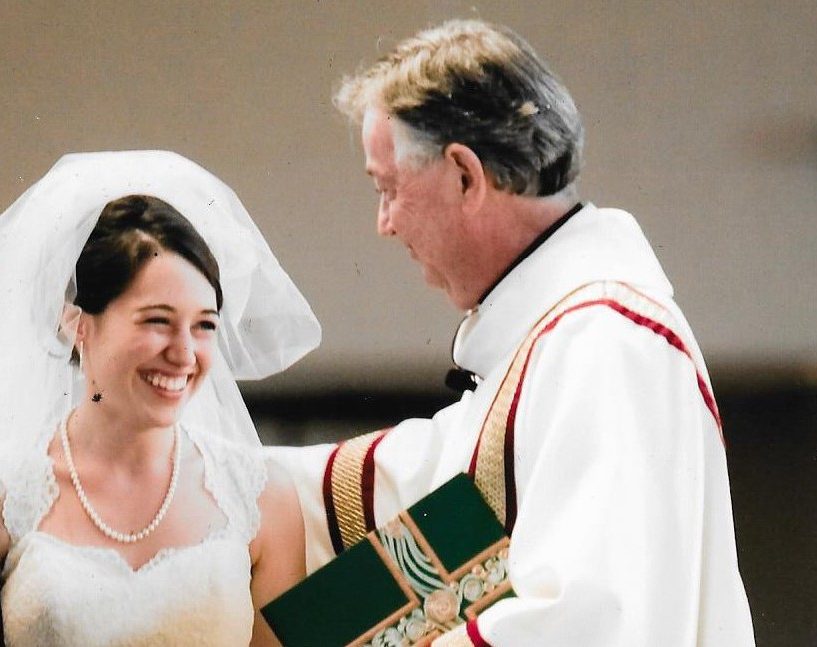B cycle – Feast of Ascension 24
Eph. 1:17-23
Jesus at the last supper said to His disciples that “…it was better for you that I go for if I do not go the Spirit will not come” (Jn.16:7). We know they failed to understand what that meant, just as they failed to understand much of what He said to them. They fled out of fear and confusion as Jesus was arrested and crucified. They huddled together, concerned about their fate when Jesus appears to them and breathed the Spirit into them. They continued to misunderstand when Peter, seemingly seeking something familiar announces “he is going fishing” and Thomas, Nathaniel, James, John and two unnamed disciples go with him (Jn.21:2-3).
Peter’s statement seems to be one of giving up on trying to understand what is happening. He is returning to what is familiar and comfortable for him. That is what we do when we fail to understand. We retreat to the familiar. We know while they were fishing Jesus appears on the shore and calls out to them to cast their nets m once more. Peter responds by jumping out of the boat, swims to Him and as he comes out of the water Jesus embraces him. That encounter was not enough to end his confusion, but it was powerful enough for Peter to wait for further revelations.
We are not confused but we are unaware of the critical role of the third person of the trinity in our faith journey. Just before Jesus ascends, He says “wait in the city until you are clothed with power from on high.” We know what follows and what happened was transformative and empowering. Pentecost, the outpouring of the Spirit upon the one hundred and twenty gathered in that upper room. The mission of Jesus to reconcile every man, woman and child to God was complete. Expiation for our sins, once for all time was complete. But God’s plan was not just to remove the barrier of sin between us and Him. It was to change our hearts so that we would not only follow His commands and decrees, but we would know Him.
We should desire intimacy with God, through Jesus Christ in the power of the Holy Spirit. What God promised us forgiveness of our sins if we repent, and that the Sprit would change our hearts. Unfortunately, the promised Messiah was not what they believed He would be. He was not going to free them from the oppressive rule of the Romans. What they and we fail to understand is how Spirit would free them from the destructive rule of sin in our lives. Jesus removed the penalty of our sin. While the Spirit is the power to overcome sin.
Our confusion has a different origin than that of the disciples. Theirs was a belief that the Spirit was only given to the great figures in the scriptures and the messiah would be the last great figure.
Our confusion is rooted in a failure in our faith formation about the importance of the Holy Spirit as the source of our spiritual lives. When Jesus said, it is better for us to have the Spirit we should question why the Spirit is more important for us than Jessus. His teaching on the role of the Spirit in that upper room is direct and unequivocal. What we do as believers is to be fueled by, guided by, and inspired by the Spirit. We need to allow the Spirit to penetrate our hearts, our minds and bring us clarity about how forgiveness works.
We cannot earn God’s favor. God’s mercy is not something we earn, deserve, or even understand. It is more than forgiveness for our transgressions against God and man. It is a forgiveness for not giving God our hearts. It is our withholding from God our inner struggles to believe in His promises. It is not allowing the Spirit to change those things in us that are at the root of our sin. We believe we can overcome those weaknesses by sheer willpower, or by our external acts of holiness. Jesus knows without the Spirit; we are deceiving ourselves because we have allowed ourselves to be believe we can do it alone. That is a tactic of the devil.
We need the Spirit because it is God’s plan for our holiness. It is the Spirit within us that will teach us, mold us, guide us, and empower us to be all God created us to be – His sons and daughters. He will speak what He hears and will baptize us in fire and embolden us to glorify God by the way we live our lives. Scriptures calls this the “promise of the Father.” That outpouring of the Spirit was never intended to be just for the disciples and those gathered with them in the upper room. It was a promise of God to every individual born after the resurrection. Joel 2:28 – I will pour out my spirit on all mankind.
Of course, they failed to understand because we fail to understand the need for us to seek to tap into the Holy Spirit to help us encounter Christ, to encounter forgiveness and to rid ourselves of sin. Why are we looking up to the sky when we only need to close our eyes and pray for the Spirit to come into our hearts? Then and only then will be we able to understand how please God is with us. He will come to us, just as He came to Peter on the shore that day. He will end our search for understanding because we will believe He has overcome all obstacles to restore us.
